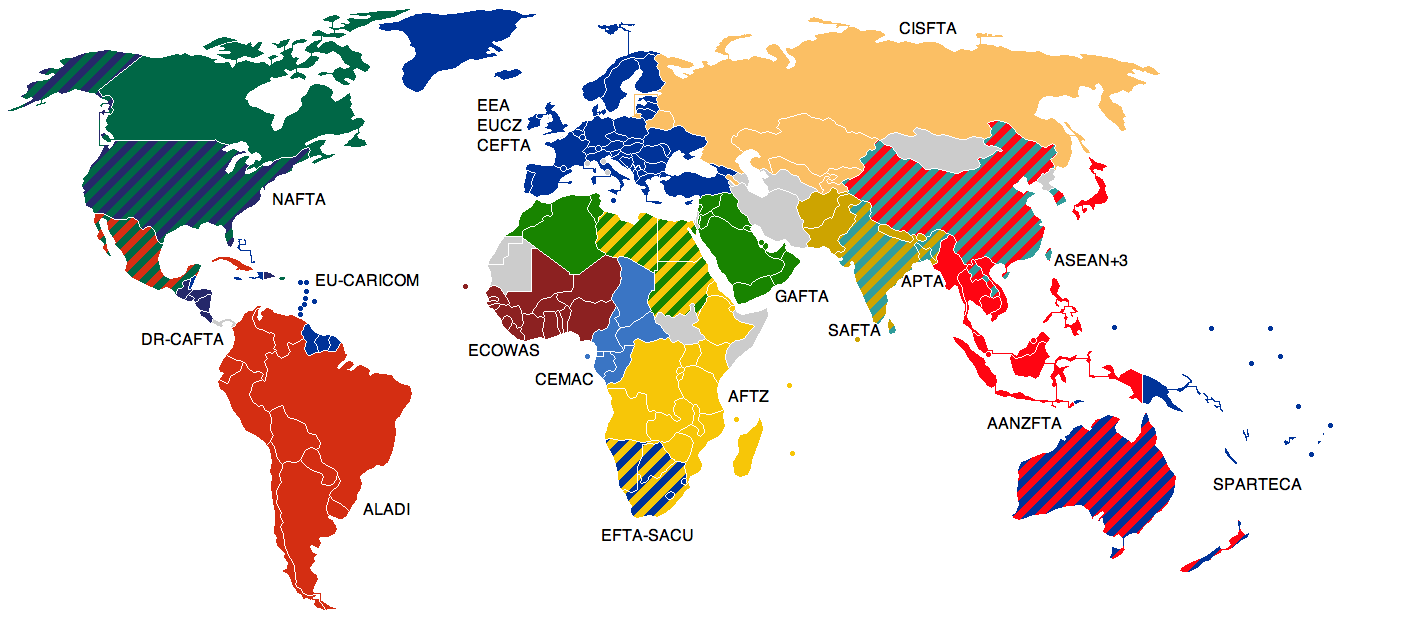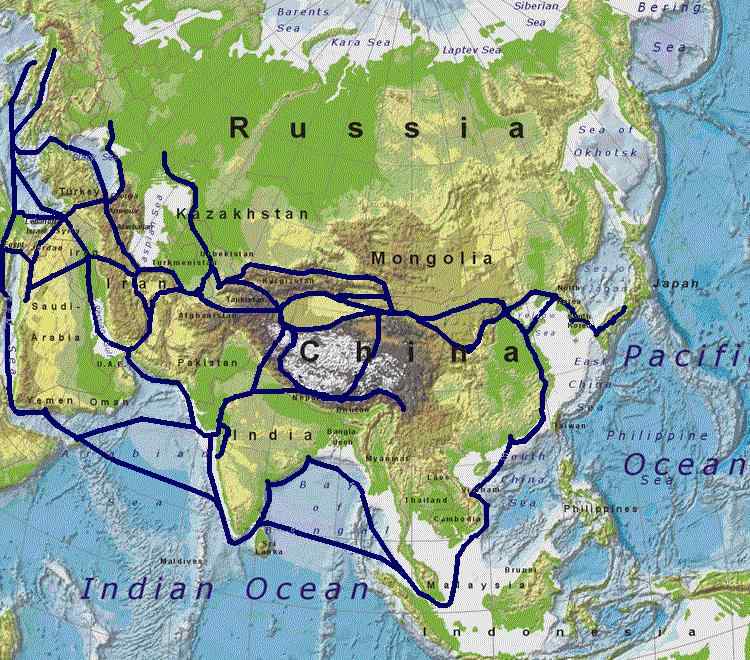|
United States–Thailand Free Trade Agreement
President George W. Bush and Prime Minister Thaksin Shinawatra announced the intention to negotiate a US-Thailand free trade agreement on October 19, 2003, during President Bush's state visit to Thailand on the event of the APEC Leaders' meeting in Bangkok. Mr. Thaksin was deposed in the 2006 Thai coup d'état without having finished negotiating the agreement. See also * Siamese-American Treaty of Amity and Commerce of 1833, proclaimed June 24, 1837, a free-trade agreement except for munitions of war and opium, or to export rice, but without reciprocity * Reciprocity (international relations) * Rules of Origin *Market access *Free-trade area *Tariffs External linksThe US-Thailand Free Trade Agreement (FTA) Business Coalition [...More Info...] [...Related Items...] OR: [Wikipedia] [Google] [Baidu] |
President Of The United States
The president of the United States (POTUS) is the head of state and head of government of the United States. The president directs the Federal government of the United States#Executive branch, executive branch of the Federal government of the United States, federal government and is the Powers of the president of the United States#Commander-in-chief, commander-in-chief of the United States Armed Forces. The power of the presidency has grown since the first president, George Washington, took office in 1789. While presidential power has ebbed and flowed over time, the presidency has played an increasing role in American political life since the beginning of the 20th century, carrying over into the 21st century with some expansions during the presidencies of Presidency of Franklin D. Roosevelt, Franklin D. Roosevelt and Presidency of George W. Bush, George W. Bush. In modern times, the president is one of the world's most powerful political figures and the leader of the world's ... [...More Info...] [...Related Items...] OR: [Wikipedia] [Google] [Baidu] |
Reciprocity (international Relations)
In international relations and treaties, the principle of reciprocity states that favors, benefits, or penalties that are granted by one state to the citizens or legal entities of another, should be returned in kind. For example, reciprocity has been used in the reduction of tariffs, the grant of copyrights to foreign authors, the mutual recognition and enforcement of judgments, and the relaxation of travel restrictions and visa requirements. The principle of reciprocity also governs agreements on extradition In an extradition, one Jurisdiction (area), jurisdiction delivers a person Suspect, accused or Conviction, convicted of committing a crime in another jurisdiction, into the custody of the other's law enforcement. It is a cooperative law enforc .... Specific and diffuse reciprocity Several theorists have drawn a distinction between "specific reciprocity" and "diffuse reciprocity". While specific reciprocity is exemplified by international trade negotiations, as sugge ... [...More Info...] [...Related Items...] OR: [Wikipedia] [Google] [Baidu] |
Free Trade Agreements Of The United States
The United States is party to many free trade agreements (FTAs) worldwide. Beginning with the Theodore Roosevelt administration, the United States became a major player in international trade, especially with its neighboring territories in the Caribbean and Latin America. The United States helped negotiate the General Agreement on Tariffs and Trade (later the World Trade Organization). Active agreements The following agreements are currently in effect, signature and entry into force dates are as listed by the World Trade Organization. Negotiations The following agreements have begun negotiations since 2020. Obsolete agreements Failed proposals Free Trade Area of the Americas * * * * * * * * * * * * * * * * * * * * * * * * * * * * * * * * * * Trans-Pacific Partnership * * * * * * * * * * * Transatlantic Trade and Investment Partnership * See also * Bilateral Investment Treaty * European Union free trade agreements * Fre ... [...More Info...] [...Related Items...] OR: [Wikipedia] [Google] [Baidu] |
Thailand–United States Relations
Bilateral relations between the Thailand, Kingdom of Thailand and the United States, United States of America date back to 1818. Thailand and the United States have long been close allies and diplomatic partners. According to a 2012 Gallup (company), Gallup public opinion poll, 60% of Thai people, Thais approved of U.S. leadership, with 14% disapproving. As of 2013, there were 7314 international students of Thai origin studying in the United States, representing 0.9 percent of all foreigners pursuing higher education in America. Historical relations 19th century The first recorded contact between Thailand (then known as Rattanakosin Kingdom (1782–1932), Siam) and the United States occurred in 1818, when an American ship captain visited the country bearing a letter from President James Monroe. Chang and Eng Bunker, the original Siamese twins, were brought to the United States in the early 1830s. In 1832, President Andrew Jackson sent his envoy Edmund Roberts (diplomat), Edmun ... [...More Info...] [...Related Items...] OR: [Wikipedia] [Google] [Baidu] |
Foreign Trade Of Thailand
The economy of Thailand is dependent on exports, which accounted for about 58 percent of the country's gross domestic product (GDP) in 2021. Thailand itself is a newly industrialized country, with a GDP of 17.922 trillion baht (US$514.8 billion) in 2023, the 9th largest economy in Asia. As of 2018, Thailand has an average inflation of 1.06% and an account surplus of 7.5% of the country's GDP. Its currency, the baht, is ranked as the tenth most frequently used world payment currency in 2017. The industrial and service sectors are the main sectors in the Thai gross domestic product, with the former accounting for 39.2 percent of GDP. Thailand's agricultural sector produces 8.4 percent of GDP—lower than the trade and logistics and communication sectors, which account for 13.4 percent and 9.8 percent of GDP respectively. The construction and mining sector adds 4.3 percent to the country's gross domestic product. Other service sectors (including the financial, education, ... [...More Info...] [...Related Items...] OR: [Wikipedia] [Google] [Baidu] |
Tariffs
A tariff or import tax is a duty imposed by a national government, customs territory, or supranational union on imports of goods and is paid by the importer. Exceptionally, an export tax may be levied on exports of goods or raw materials and is paid by the exporter. Besides being a source of revenue, import duties can also be a form of regulation of foreign trade and policy that burden foreign products to encourage or safeguard domestic industry. Protective tariffs are among the most widely used instruments of protectionism, along with import quotas and export quotas and other non-tariff barriers to trade. Tariffs can be fixed (a constant sum per unit of imported goods or a percentage of the price) or variable (the amount varies according to the price). Tariffs on imports are designed to raise the price of imported goods to discourage consumption. The intention is for citizens to buy local products instead, which, according to supporters, would stimulate their country's econom ... [...More Info...] [...Related Items...] OR: [Wikipedia] [Google] [Baidu] |
Free-trade Area
A free trade area is the region encompassing a trade bloc whose member countries have signed a free trade agreement (FTA). Such agreements involve cooperation between at least two countries to reduce trade barriers, import quotas and tariffs, and to increase trade of goods and services with each other. If natural persons are also free to move between the countries, in addition to a free trade agreement, it would also be considered an open border. It can be considered the second stage of economic integration. Customs unions are a special type of free trade area. All such areas have internal arrangements which parties conclude in order to liberalize and facilitate trade among themselves. The crucial difference between customs unions and free trade areas is their approach to third parties. While a customs union requires all parties to establish and maintain identical external tariffs with regard to trade with non-parties, parties to a free trade area are not subject to this requiremen ... [...More Info...] [...Related Items...] OR: [Wikipedia] [Google] [Baidu] |
Market Access
In international trade, market access refers to a company's ability to enter a foreign market by selling its goods and services in another country. Market access is not the same as free trade, because market access is normally subject to conditions or requirements (such as tariffs or Import quota, quotas), whereas under ideal free trade conditions goods and services can circulate across borders without any Trade barrier, barriers to trade. Expanding market access is therefore often a more achievable goal of trade negotiations than achieving free trade. Market access concessions and limitations to market access differ greatly between trade in goods and trade in services. While market access for goods mainly involves measures at the border such as customs duties or quantitative restrictions, market access for services relates more to the application of domestic regulation behind the border. Moreover, in a world of proliferating regionalism, preferential market access for goods and se ... [...More Info...] [...Related Items...] OR: [Wikipedia] [Google] [Baidu] |
George W
George Walker Bush (born July 6, 1946) is an American politician and businessman who was the 43rd president of the United States from 2001 to 2009. A member of the Bush family and the Republican Party (United States), Republican Party, he is the eldest son of the 41st president, George H. W. Bush, and was the 46th governor of Texas from 1995 to 2000. Bush flew warplanes in the Texas Air National Guard in his twenties. After graduating from Harvard Business School in 1975, he worked in the oil industry. He later co-owned the Major League Baseball team Texas Rangers (baseball), Texas Rangers before being elected governor of Texas 1994 Texas gubernatorial election, in 1994. Governorship of George W. Bush, As governor, Bush successfully sponsored legislation for tort reform, increased education funding, set higher standards for schools, and reformed the criminal justice system. He also helped make Texas the Wind power in Texas, leading producer of wind-generated electricity in t ... [...More Info...] [...Related Items...] OR: [Wikipedia] [Google] [Baidu] |
2006 Thai Coup D'état
The 2006 Thai coup d'état took place on 19 September 2006, when the Royal Thai Army staged a coup d'état against the elected caretaker government of Prime Minister Thaksin Shinawatra. The coup d'état, which was Thailand's first non-constitutional change of government in fifteen years since the 1991 Thai coup d'état, followed a year-long political crisis involving Thaksin, his allies, and political opponents and occurred less than a month before nationwide House elections were scheduled to be held. It has been widely reported in Thailand and elsewhere that General Prem Tinsulanonda, a key person in the military-monarchy nexus, Chairman of the Privy Council, was the mastermind of the coup. The military cancelled the scheduled 15 October elections, abrogated the 1997 constitution, dissolved parliament and the constitutional court, banned protests and all political activities, suppressed and censored the media, declared martial law nationwide, and arrested cabinet member ... [...More Info...] [...Related Items...] OR: [Wikipedia] [Google] [Baidu] |






